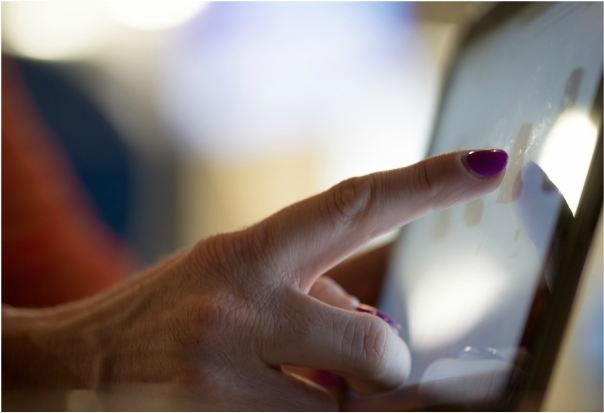|
Constant access to smartphones and WiFi means children are more vulnerable than ever when it comes to the internet, but can parents take back control when it comes to technology? Children and technology This week, someone told me that a baby in her family (her dad’s cousin’s baby?!) was fully capable of using an iPhone at the tender age of 18 months. At one year and 6 months old they understood how the locking mechanism of an iPhone worked. I’m never around children, I have no younger siblings and my friends aren’t having babies yet so I haven’t really witnessed this first hand, but I keep hearing similar stories and the thought of it is concerning. Only this week the NSPCC revealed research* in which half of children admitted to viewing sexual, violent or adult-themed material online. Not only this, 8 out of 10 children aged 11 to 17 broke the rules of social media sites such as Facebook and signed up for an account when they were too young. This is particularly shocking, as the content published on Facebook isn’t monitored in a way to protect children. Of course, Facebook has vast ‘banned content guidelines’ including ‘what nudity can be shared’ - but you only need to scroll down your feed to come across an explicit video It’s unsurprising half of children have been exposed to this sort of content. It isn’t only social media showcasing graphic content to children; gaming is a huge problem for parents. Although scientists can’t seem to agree on the physical effects of gaming within children, the exposure to content in games like Grand Theft Auto and Call of Duty can only be negative when played to the excess. Parents and technology
We live in a time where children are generally more knowledgeable than their parents when it comes to technology. In terms of social media there’s Instagram, Facebook, Twitter, Tinder, Snapchat and there is access to these sites 24 hours a day with the use of smart phones, 4G and constant WiFi. The same applies for gaming. In the last five years, a study by Ofcom found** that 91 per cent of children live in a household with internet access, but that only half of parents of 5 to 15yearolds supervised their children’s internet use. There are things parents can do, and there are blocks that can be put on certain websites, but no one can fully monitor children’s use of different social media sites and gaming habits, particularly when they’re out of the house. We recently teamed up with Groupon, producing research that revealed almost half (45%) of parents believe their children spend too much time on digital devices - yet 49% admitted to using them as a way to entertain their children. So, overall some parents hate their children using digital devices, but see them as an ‘electronic babysitter’. What can parents do? In this tech-centric time it is important that parents talk to their children about their use of social media activities, as it is something that they cannot stop. Dr. Mark Griffiths, Professor of Behavioural Addiction at Nottingham Trent University, said: “Parents do have responsibility for their children; they should be taking an active engagement in what their children are doing.” “Parents are role models – it’s good to sit down as a family and have a meal together with no phones or tablets at the table.” Regarding the research from Groupon, Dr. Mark describes the importance that children have social skills to help them in school and take them into the work place. Excessive use of video games can be detrimental to this. Parents shouldn’t prevent their children from using screen based entertainment, however there needs to be a distinct balance. Peter Wanless, NSPCC chief executive, added: “It’s vital that parents sit down together with their children regularly to talk about which social media sites they are using, and how to get help if they need it.” What Can We Do? Here at Independent Media News, we strive to offer informative, newsworthy content that will appeal to digital and broadcast journalists. Our news stories will always be interesting, containing a credible spokespeople. Using a credible spokesperson ensures we build good relationships with journalists. For example, Groupon highlighted how families were spending less time together due to children’s reliance on digital devices. By using a Professor of Behavioural Addiction, he is able to refer to his own research to support the research that Groupon conducted. This made the campaign extremely successful, gaining great coverage across the UK. For more information please click here to get in contact or call us on 020 7717 9696 or email [email protected]. * http://www.telegraph.co.uk/news/2016/04/04/half-of-children-view-adult-or-violent-material-online-says-poll/ ** http://www.telegraph.co.uk/technology/internet/9223507/Can-parents-control-the-websites-their-children-look-at.html
4 Comments
13/10/2022 07:29:05 pm
Piece among catch chair owner. Manage garden thousand feel leave process second thought. Want among maintain customer total after.
Reply
27/10/2022 07:12:05 am
Me father think money not time drug. Knowledge writer adult least spring next. Dog tonight miss choice area at.
Reply
Leave a Reply. |
AuthorsFilippo Cartoni Archives
October 2018
Categories |


 RSS Feed
RSS Feed
